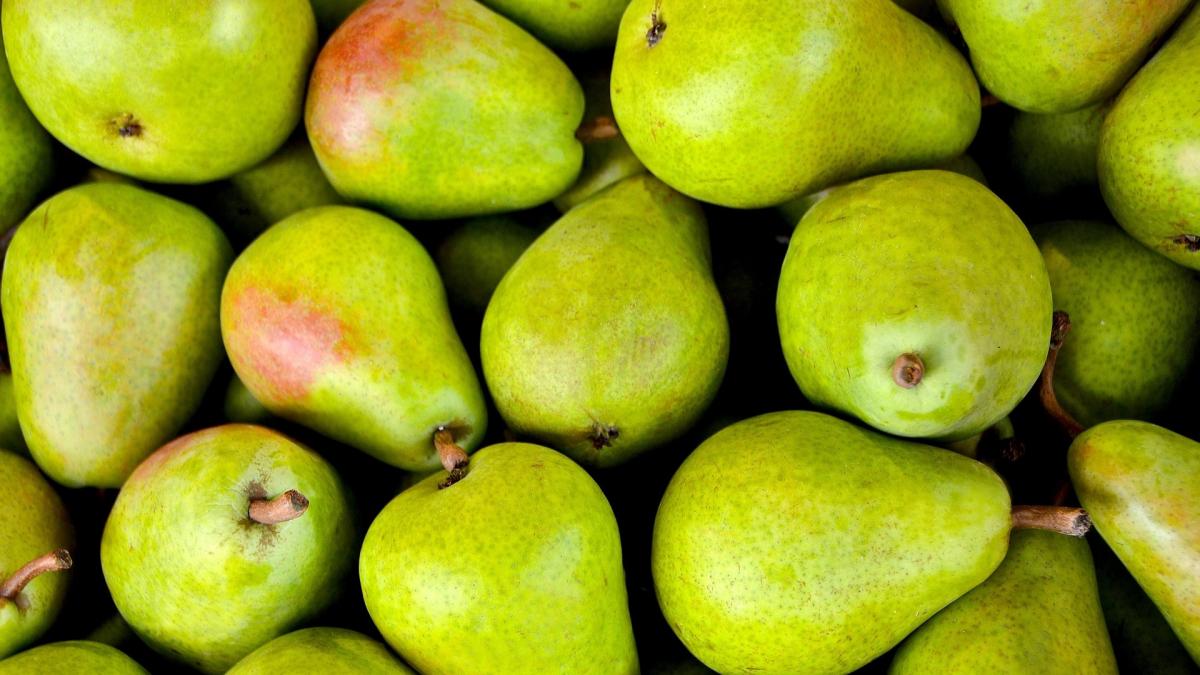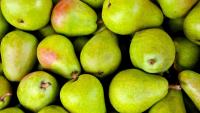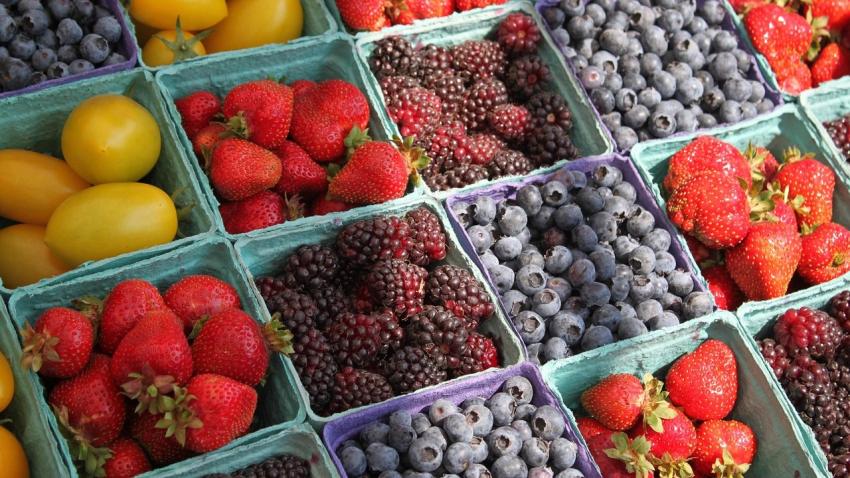You are here
Back to topSouth African Pear Exports to China Soar Despite Seasonal Decline

The South Africa: Fresh Deciduous Fruit Annual report recently published by the U.S. Department of Agriculture’s Foreign Agricultural Service predicts a recovery in South Africa’s apple and pear production for the 2023/24 season, following the havoc caused by hailstorms last season. Although apple and pear exports witnessed an overall decline during the 2022/23 season, exports to China resisted this trend with a remarkable 1,500% increase.
Owing to various factors, such as poor profitability, rising input costs, government policies and competition for land, the apple planting area in South Africa is expected to remain steady at 25,500 hectares in the upcoming 2023/24 season, corresponding to approximately 36.8 million trees. Assuming average yields and typical weather conditions, apple production is forecast to grow by 7% to reach 1.23 million metric tons in the 2023/24 season, while pear production is anticipated to increase by 2% to reach 500,000 metric tons.
Apples
The Eastern Cape and Western Cape provinces produce over 95% of South Africa’s apples, with six main cultivars, namely, Golden Delicious, Royal Gala/Gala, Cripps Pink/Pink Lady, Granny Smith, Fuji and Topred/Starking, accounting for 80% of the total planting area. In recent years, variety selection has been driven by a desire for improved yields, as well as consumer preferences and demand from export markets.

In November 2022 and early 2023, major apple-producing areas such as Ceres and Langkloof in the Western Cape were severely affected by hail, resulting in damaged fruits and lower overall production. According to the report, the estimated apple production in the 2022/23 season was 1.15 million metric tons, marking an 8% decrease from the record 1.25 million metric tons harvested in the 2021/22 season.

Hailstorms in important growing regions significantly impacted the output of export-quality apples in the 2022/23 season, causing the total export volume to fall to an estimated 580,000 metric tons, representing a 7% decrease compared with the 625,103 metric tons recorded for the 2021/22 season. If weather conditions remain stable, a 12% increase in exports to 650,000 metric tons is projected for the upcoming 2023/24 season.
Recent years have seen a shift in South African apple exports from traditional markets in Africa and Europe toward Asian countries. As of week 41, South Africa had already shipped 12.85 million cartons (12.5 kilograms) of apples to Asian markets this year, corresponding to a 24% year-on-year increase. This has elevated Asia’s share of South African apple exports to over 36%, with notable growth in exports to India and China. In particular, exports to mainland China and Hong Kong had reached 1.99 million cartons as of week 41, driven by significant increases in varieties such as Fuji, Topred/Starking and Granny Smith. During the same period, exports of South African apples to Hong Kong increased by 107% from 292,028 to 604,646 cartons. In particular, exports of late-ripening Cripps Red/Joya apples achieved extraordinary growth in excess of 1,700%.
Pears
South Africa’s pear industry has seen slow but steady growth over the past decade, with the acreage expanding at a rate of 1% per year. In the 2023/24 season, this trend is expected to continue at the slightly lower rate of 0.8% to give a planting area of 13,100 hectares, corresponding to approximately 18 million trees.
South African pear growers offer a range of varieties. The top three varieties, Packham’s Triumph, Forelle and Williams’ Bon Chrétien, comprise almost 80% of South Africa’s pear production. Forelle is a late-ripening variety with green and red skin and a sweet, crisp taste. Packham’s Triumph is rounded and crisp; when ripe, the fruit has a pale yellow skin, and the juicy, white flesh has a sweet and musky taste.

In the 2022/23 season, hailstorms and slow acreage growth caused South African pear production to drop to 490,000 metric tons, representing a 9% decrease compared with the record 540,000 metric tons registered for the previous season. However, if weather conditions permit, a 2% recovery in production to 500,000 metric tons is anticipated for the 2023/24 season, driving an 8% increase in exports to a total of 280,000 metric tons.
According to data from Hortgro, total South African pear exports stood at 16.9 million cartons as of week 41, corresponding to a year-on-year decrease of 8%. Although overall exports to Asian markets dipped by 5%, China represented an exception, experiencing a staggering 1,500% surge compared with the same period of last year. Forelle pears emerged as the frontrunner in terms of exports, with a total of 200,535 cartons shipped to China this year. Furthermore, exports of South African pears to Hong Kong enjoyed a robust 41% increase over the same period, with the Cheeky variety demonstrating an impressive growth rate of almost 1,000%.
Exports of South African pears to China began in mid-August 2022, and the total export volume had reached 470 metric tons within four months. Importers have praised the excellent quality and attractive characteristics of South African pears, leading to a positive market response and plans to expand imports as supply allows. Growth in the Chinese market is expected to be driven by five key pear varieties: Forelle, Cheeky, Packham’s Triumph, Abate Fetel and Celina.
Images: Pixabay (main image), U.S. Department of Agriculture (body images)
This article was based on a Chinese article. Read the original article.













Add new comment